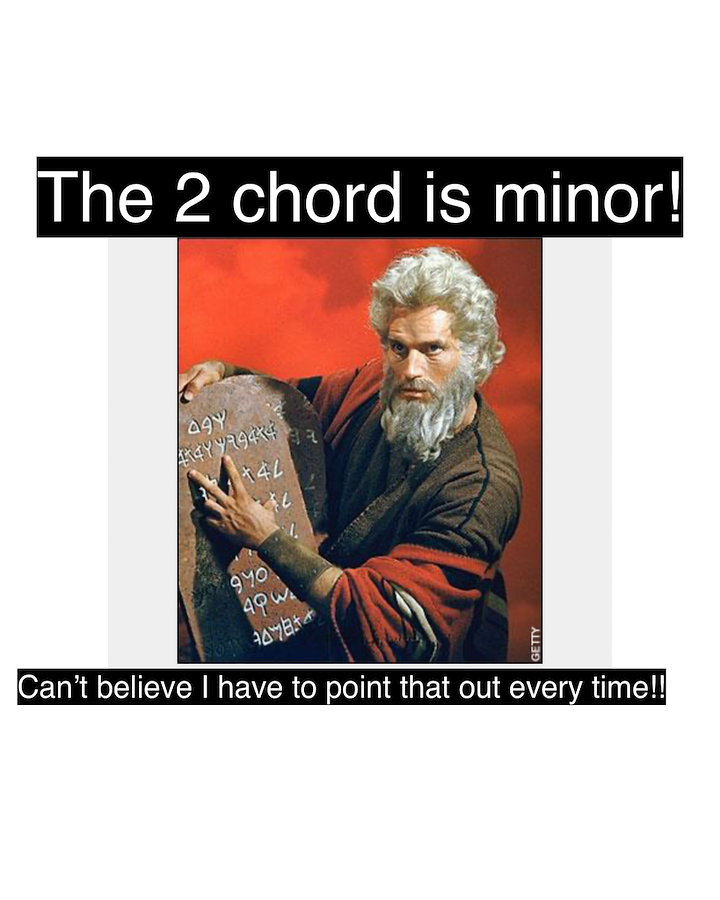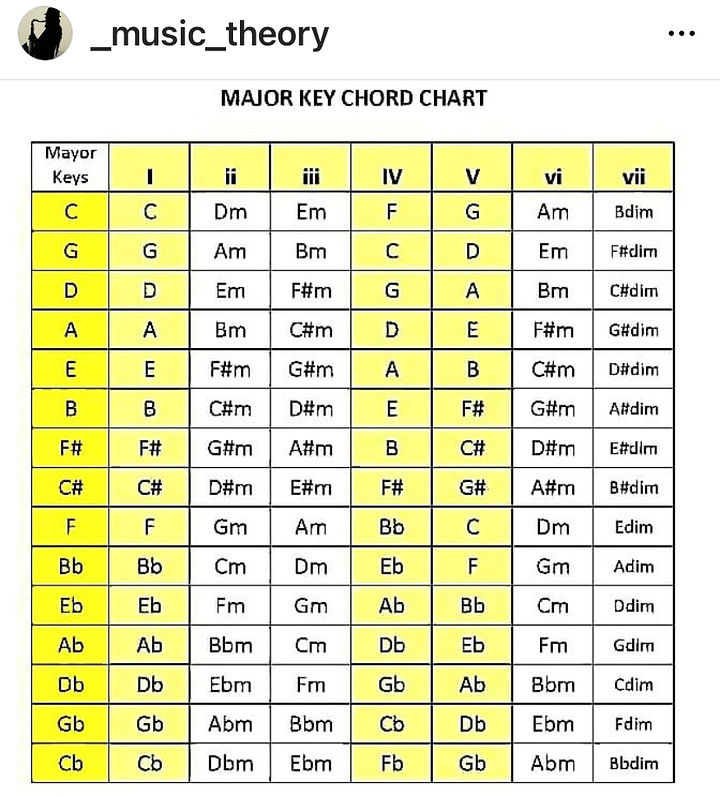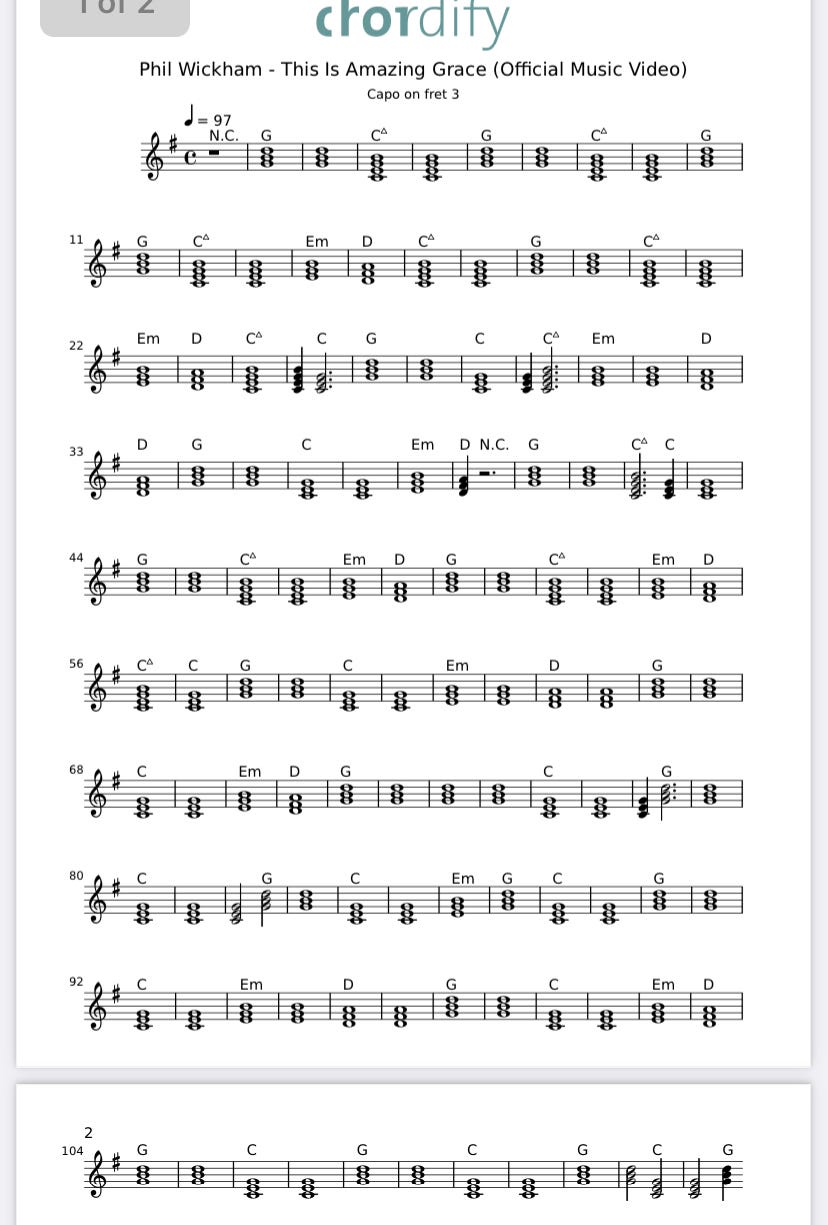Welcome to The Famous Thursday Post!
Our focus on Thursdays is on songwriting, recording, production and commercial release.
For today, yes - I wanted to do things a bit differently. To say the least…
Over the past few weeks we’ve been adjusting to the new “Famous” Thursday Posts, and “Regular” Friday Posts format. A little more predictable in content, and different to some degree than previously. One thing that won’t be changing is the inclusion in an “at the top” Spotify playlist. Nope - that’s a “today only” thing (probably anyway…if y’all want an “at the top” playlist on Thursdays, fine! Let me know…).
Over the last few weeks we’ve talked in some depth about syllable counts in songwriting, Jim Croce songs as examples of conveying emotion in writing lyrics, a Bobby McFerrin song as a counterpoint to lost love or heartbreak songs - that is, upbeat, happy songs can sell as well, and last week’s BBMak “beginning of a relationship/falling in love” type of song can be great, even if somewhat obscure for them (to be sure, 3 million albums sold is no small feat, the band just had a hard time staying together, and couldn’t follow through - they shone, oh so brightly, for a while though!).
So today, everything’s different!! I had actually only intended to drop in the title song of the ‘til Tuesday album “Everything’s Different Now”, but copied the link for the album instead, and as I looked over the tracks with fond memories, I just left it the way it was…. (Note for you Declan MacManus fans - check out “The Other End Of The Telescope”…)
Everything's Different Now - Wikipedia
So today I’m not spending too much time in this section in favor of going a little deeper into some of the links I’ve included below. I know some of you bypass these, and I get Substack can be a time sucking rabbit hole, especially if you subscribe, like I do, to many other voices, many music oriented, but other topics as well (like overuse of commas for instance…).
So, in the links for today, I’ve limited them to a single source - the Disc Makers blog; and subjects more or less limited to the Thursday Posts purposes of songwriting, recording, production, and commercial release. See below for the links and what I think might be most helpful for my readers.
Last thing for this section. I’ve written before about how I started on the guitar much later than others, learned a bit about playing, played in a church band where I learned I needed to learn a lot more. So I took guitar lessons from a local guitar instructor (who’s the guitarist on my song that’s out - see the Shameless Self Promotion Section below to hear his extraordinary playing!). At the same time I took a couple of semesters of music theory at a local college, and a semester of piano (where I learned respect for the instrument, and also learned I am really not a piano player, but it can be useful…just sayin….).
So, playing in a church band was a very important experience for me. Maybe for some of you as well. We cover a lot of styles of music on here, and Christian praise band music is a thing, though admittedly, it may or may not be your thing. Just like other styles, indie, Americana, rock, pop, country - the blues based songs of a “genre” or the beat based rap/hip-hop/beat music may or may not be your thing. But it’s all music. So occasionally, and I haven’t decided on a frequency yet, I’m going to feature in the “Odds and Ends” section a Christian “praise band” type of song - at least the first of these will be songs I actually played as part of the church praise band, and we’ll see how it goes from there. I’m certainly open to any comments you may have.
New Space Saving Disclaimer!: This Substack, (not just the first one!) is free, always will be, none of the people or companies or products I link to or write about pay me a damn thing. Neither do you unless you buy my song(s) (See what I did there?). Some stuff may be copyrighted by somebody else…whatever. “Fair Use” doctrine for “educational purposes” (Link: Fair Use) applies, suckers! No stinkin’ AI here unless it’s in something I link to. So.
Michael Acoustic
Today’s musician’s quote:
“The future is keeping you out of the present time.” Van Morrison
Some “Biz” Links for today:
From Disc Makers:
OK - this question is ripe for a BLUF, and here it is:
“Therefore, to achieve a gold certification, a release would need to accumulate 625 million subscription streams or 1.875 billion free streams. Of course, album sales also contribute to these totals, so the number of SPS (sales plus streaming) is what counts towards certification, and it takes all these units into consideration.”
That quote is from the article, and on it’s face, for an independent singer/songwriter, band, anyone who releases music on their own, the numbers look a bit hopeless, though to be sure they don’t include payments for performances at gigs, or royalties on songs you may have copyrighted.
But - the end result entirely depends on what your hopes are! Over the past few weeks ago we’ve talked about goals, as in what do we write, play, perform, record music for anyway? Is it to sign a deal with a record label? Become a well known recording and/or performing artist? Sell a lot of records, make money, retire? Collaborate with others for any or all of these goals? Write songs that others will cover, and make money from royalties because we’ve copyrighted every aspect of our songs?
I dunno - everybody has different motivations, dreams, aspirations. The numbers above, however, are daunting. I’ve pretty much opted for the last option. I’d like to see my songs covered and more widely heard than I’m realistically going to be able to pull off on my own. That sort of clear eyed self assessment can be difficult, and it gets a little easier as one gets older I suppose. But honest self assessment can turn unrealistic hopes into potentially more achievable goals. Just sayin’, and your mileage may vary.
Money quote:
“Building a successful career as an independent artist requires more than musical talent. Constructing a music career requires a strategic approach to the promotion of your music and artist brand and engagement with your audience. It’s the proverbial business side of the music business, and for indie artists, it’s every bit as important as creating incredible music when it comes to sustaining your career. Here are some strategies to grow as an independent artist.”
You just don’t get truth like that first sentence often. It’s the first sentence of that paragraph, but for most of us in the “biz” it’s the bottom line. Lots of talented musicians out there. It’s the business side that overshadows “luck” or “talent”, or ambition. All of those are helpful, but the business of music is business that results in money being made by someone. Everything else, businesswise, is peripheral (like writing about music and the music biz), or a hobby. Read the whole thing.
Garageband - Garageband is a limited Digital Audio Workstation. It doesn’t have the features needed for as much capability as found in it’s big brother, Logic Pro X or other professional level DAWs. While it’s free, it only works on a Mac (maybe iPhone or iPad as well, not sure). But for learning the basics of recording - like what “tracks” look like, and things you can do with them, it’s great. Not so much for learning “stems” - the channel strips that are the places where you can modify the tracks with plugins and effects. Still…
Music Production - This is basic stuff, interesting and there’s a book you can buy. My advice - read the article, play around with some of the stuff that’s free or cheap, spend money on professionals. The other option and if you’re able to, seriously consider this - is to go to school and learn audio engineering, then make money doing for others what you can also do for yourself.
UPC Codes For Music - You already know what the ubiquitous UPC code looks like, but your song needs one as well. It’s an identifier that will result in you getting paid for your songs when someone or some business performs, plays, uses in some way your song. This article also talks about ISRCs (International Standard Recording Codes) - make sure you have one, your distributor or publishing admin has brazillions of them and will assign one, or you can buy one from Disc Makers - imagine that… There are also a bunch of other codes, numbers, identifiers that your song/EP/album/whatever need to make sure you get paid when your song is used in some manner.
Some memes and stuff:




Shameless Self Promotion Section:
My song is out! “Long Road Back” (click on link for streaming options)
Odds and Ends:
“This Is Amazing Grace" is the lead single on Phil Wickham's fifth studio album The Ascension. It was released on August 6, 2013, by Fair Trade Services, and it was written by Wickham, Josh Farro and Jeremy Riddle, and produced by Pete Kipley.[1] Billboard named it No. 1 on the Christian Airplay Songs chart for 2014.[2] This song was released originally by Jeremy Riddle on the album For the Sake of the World with Bethel Music.[3]
This Is Amazing Grace Lyrics
Originally written in BbMaj, 4/4 time, 97 BPM, below is the Chordify score showing the chords with a capo on 3 to play in BbMaj with these chord shapes. You can just leave the capo off and play these chords if you prefer to sing in GMaj:
I remember we played this a lot - a nicely paced song, good lyrics, got everyone moving at least a little. You’ll notice Christian praise band music is heavy on repeated lyrics, especially repeated choruses. It’s to get folks to sing, sway, raise their hand, and so forth. That may sound manipulative, but it’s not. People attending a contemporary Christian worship service have an expectation of some degree of participation in the service, and a praise band offers an avenue to that participation. It’s a fun song to play as well!
Cheers, and keep playing!
Michael Acoustic
“It’s never really final - you just run out of things you can bear to change…”






I enjoyed the Wickham song, Michael! The Contemporary Christian Music (or CCM) lane was always, for me, a challenging field. I grew up in the church, and even got my BA in pro church work (Director of Christian Education) in the mid-'80s, so I was intimately familiar with that genre, along with all the secular music I also grew up with! I didn't have many faves, but I did enjoy what Michael W. Smith was putting out, and the occasional Amy Grant song.
My wife (of 6 months in the early '90s) even worked for an L.A.-based Christian record and bookstore (Lighthouse), so she introduced me to a lot of new music (and the artists who played it, too)! In fact, Amy was to attend our wedding, but scheduling conflicts arose (looking back, I wish I coulda used that excuse)!
She also introduced me to DC Talk, a rap trio, and I got to audition (a listening party), in-studio, the debut Liaison album, which had what I thought a lot of CCM music lacked....good songwriting! Here's their self-titled debut, released around '89 or '90: https://open.spotify.com/album/10VMoYOggLCNL2jyiswGir?si=665c5abde8d7491e Kinda hard, but with catchy melodies, harmonies galore, and heavy on dynamics!